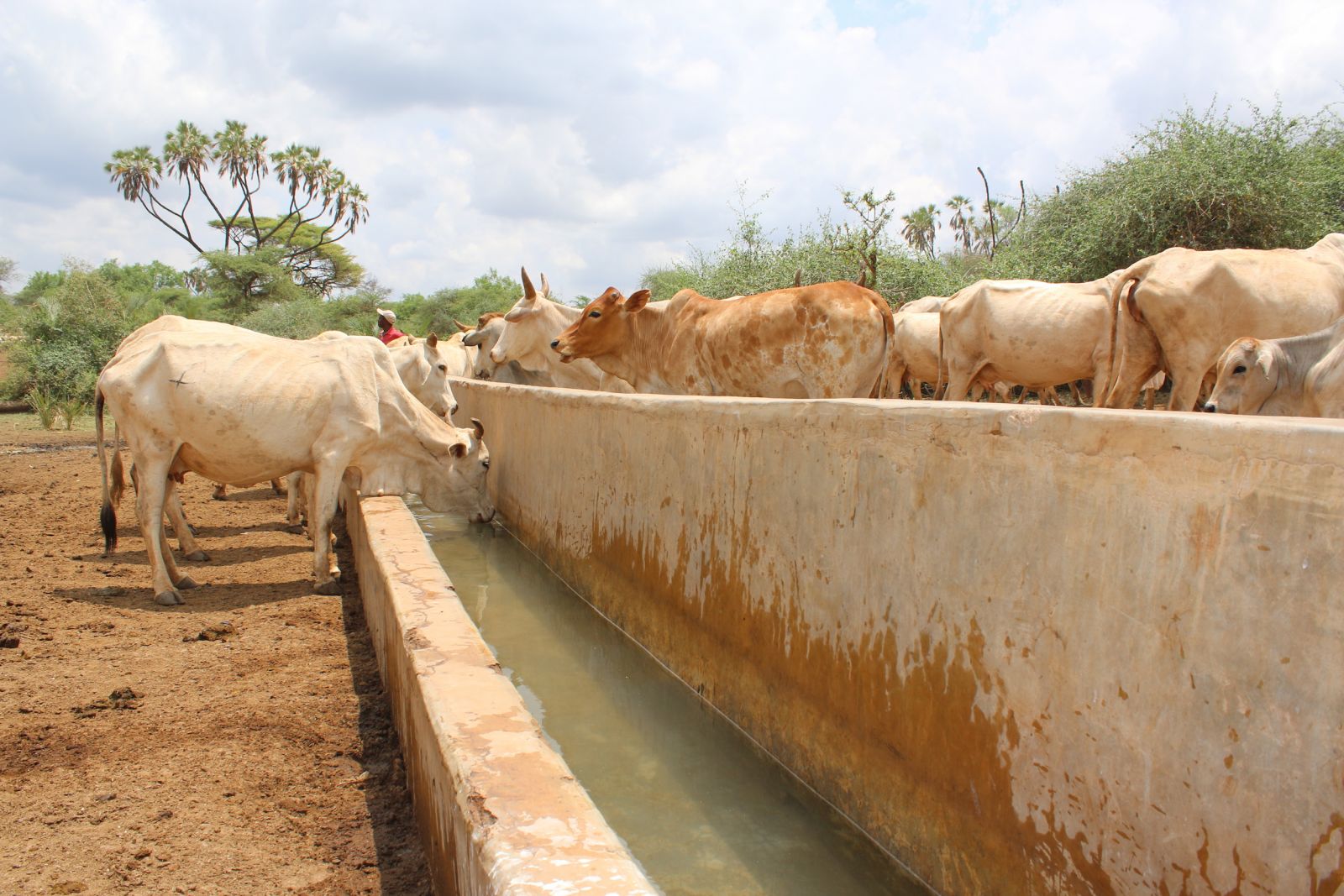You are here
- Home
- Promoting pastoralist heritage and alternative visions for development in northern Kenya
Promoting pastoralist heritage and alternative visions for development in northern Kenya
- Dates
- Wednesday, October 7, 2015 - 12:30
- Location
- OU Campus in Milton Keynes
Dr. Zoe Cormack, OU, Department of History
Joint International Development Studies/Ferguson Centre research seminar
Wednesday 7 October 2015
at 12:30pm, at the OU Campus in Milton Keynes.
Cattle drink at a water point in El-Molity, Isiolo County (Zoe Cormack, 2015)
Abstract
This paper focuses on the ways that the promotion of ‘culture' and ‘heritage' are responses, and potential forms of resistance, to large-scale development projects and changes to use of space in northern Kenya.
Northern Kenya has recently become the focus of extensive development plans, including oil exploration, renewable energy schemes and the planned LAPSSET corridor – an ambitious infrastructural development plan (part of the Government of Kenya’s Vision 2030) which is supposed to link Kenya, Ethiopia and South Sudan. These plans aim to transform the north of Kenya from an ‘unproductive’ pastoralist periphery into a hub of economic development for the region.
As well as hopes for long sought after development, there are also fears that these projects will mean exploitation of the rural pastoralist population, the fragmentation of communal land and cultural assimilation. In this context ‘heritage’ is emerging as a way of negotiating change. Various legal instruments, including ‘bio-cultural community protocols’ are currently being developed to protect pastoralist heritage and communal land tenure. An important example is attempts in Isiolo County to reinvent and strengthen a Borana customary institution for grazing management: a council of elders called dedha.
This paper will explore how these attempts are part of a larger conversation about the value of pastoralism and pastoralist culture; how the heritage of pastoralism is being positioned as the basis for an alternative ‘Vision’ for the future of Kenya’s arid lands; and how attempts to revive customary institutions are themselves part of the process of transforming space in northern Kenya.
The seminar will begin at 12:30 (with lunch served from 12:00)
The seminar will take place in room 00-13, Ground Floor, Chambers Building, OU, Milton Keynes. See campus map.
For more details see the IKD website.
To reserve your place please email Claire Emburey (Claire.Emburey@open.ac.uk) - this will help us to estimate numbers.
